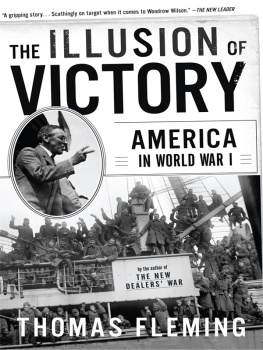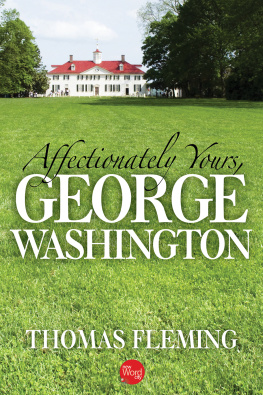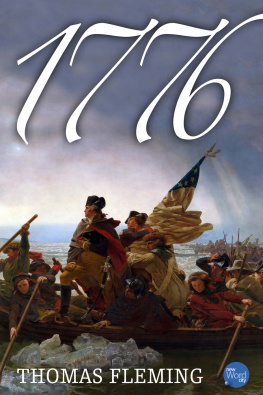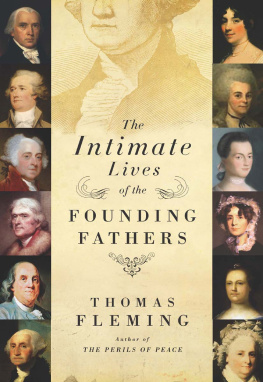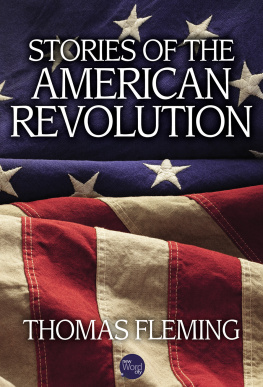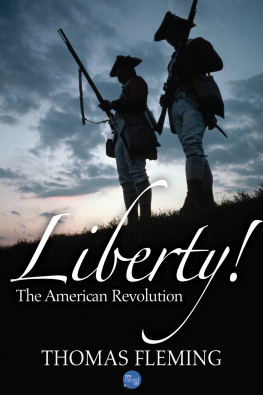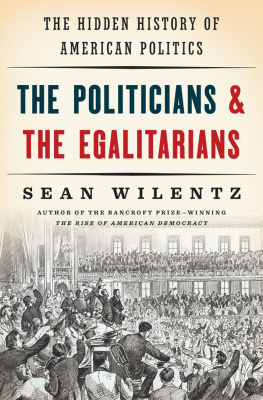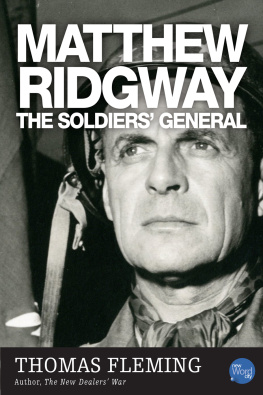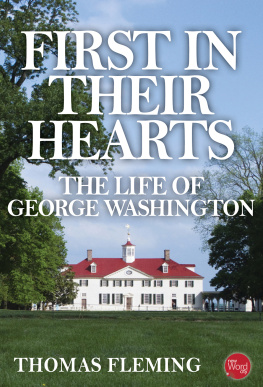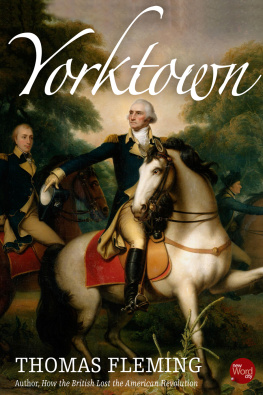THE ILLUSION OF VICTORY
ALSO BY THOMAS FLEMING
Nonfiction
The New DealersWar: F.D.R. and the War Within World War II
Duel: Alexander Hamilton, Aaron Burr and the Future of America
Liberty! The American Revolution
The Man Who Dared the Lightning
The Man From Monticello
West Point: The Men and Times of the U.S. Military Academy
One Small Candle
Beat the Last Drum
Now We Are Enemies
Fiction
Conquerors of the Sky
When This Cruel War Is Over
Remember the Morning
Over There
Loyalties: A Novel of World War II
Time and Tide
The OfficersWives
Promises to Keep
Liberty Tavern
THE ILLUSION OF VICTORY
AMERICA IN WORLD WAR I
THOMAS FLEMING
Copyright 2003 by Thomas Fleming
Published by Basic Books
A Member of the Perseus Books Group
Hardback first published in 2003 by Basic Books
Paperback first published in 2004 by Basic Books
All rights reserved. Printed in the United States of America. No part of this book may be reproduced in any manner whatsoever without written permission except in the case of brief quotations embodied in critical articles and reviews. For information, address Basic Books, 387 Park Avenue South, New York, NY 10016.
Books published by Basic Books are available at special discounts for bulk purchases in the United States by corporations, institutions, and other organizations. For more information, please contact the Special Markets Department at the Perseus Books Group, 11 Cambridge Center, Cambridge MA 02142, or call (617) 252-5298, (800) 255-1514 or e-mail special.markets@perseusbooks.com.
Designed by Lisa Kreinbrink
Set in 11-point Bembo by the Perseus Books Group
Library of Congress Cataloging-in-Publication Data
Fleming, Thomas J.
The illusion of victory: America in World War I / Thomas Fleming.
p. cm.
Includes bibliographical references and index.
ISBN-13 978-0-465-02467-4 (hc.); ISBN-10 0-465-02467-X (hc.)
eBook ISBN: 9780786724987
1.World War, 1914-1918United States. 2. United States
History1913-1921. I.Title.
D570.A456 2003
940.3'73dc21
2003002616
ISBN-13 978-0-465-02469-8 (pbk.); ISBN-10 0-465-02469-6
To Eugene D. Fleming, brother and friend
There is but one response possible for us: Force,
Force to the utmost, Force without stint or limit,
the righteous and triumphant Force which shall
make Right the law of the world.
WOOD ROW WILSON
We have got all we want in territory, and our claim
to be left unmolested in the enjoyment of our vast
and splendid possessions, mainly acquired by
violence, largely maintained by force, often seems
less reasonable to others than to us.
WINSTON CHURCHILL
If the war didnt happen to kill you, it
was bound to start you thinking.
GEORGE ORWELL

ACKNOWLEDGMENTS
A great many people have spurred and sustained my lifelong interest in World War I. Not the least is my father, Thomas J. Fleming, Sr., who was a sergeant in the Seventy-Eighth Division and was commissioned in the field when all the officers in his company were killed or wounded. I must also thank the editors of American Heritage, who sent me to Europe in 1968 to write an article on the fiftieth anniversary of the battle of the Argonne. That marked the beginning of my determination to write about the war as a historian. I am equally grateful to the staffs of Yale Universitys libraries, where I conducted my first in-depth research in 1990, for my novel Over There. It was at Yale that I first encountered the womens side of the war.
Since that time, many other people have helped me fill my file drawers. Not least has been my son, Richard Fleming, whose computer expertise and knowledge of Russian and European history have been invaluable. Also in the front rank of my researchers is Steven Bernstein, who helped explore numerous sources in Washington, D.C., and F. Kennon Moody, whose knowledge of the Franklin D. Roosevelt Library at Hyde Park has been a frequent resource. I am in debt to many other libraries and librarians, from the staff of the New York Society Library, who tolerated my endless requests for interlibrary loans, to the staff of the Westbrook Public Library at my Connecticut summer home, who were equally cooperative in this department.
My wife, Alice Fleming, has been a vital supporter throughout the many drafts of the manuscript, as well as a superb in-house editor. I must also add my agent, Ted Chichak, to this list of colleagues. His advice, both from the editorial and business points of view, has been a constant resource. My gratitude also extends to my previous editor at Basic Books, Don Fehr, who encouraged me to tackle this daunting task, and my current editor, Elizabeth Maguire, whose enthusiasm for the project has been an equally sustaining force.
Chapter 1
WAR WEEK
It was time.
At 8:20 P.M. on Monday, April 2, 1917, a grim-faced Woodrow Wilson strode down the main corridor of the White House onto the North Portico. There a black Pierce-Arrow limousine waited in the rain, its motor purring. With the president was his secretary, Joseph Tumulty, his doctor, Admiral Cary T. Grayson, and an army aide, Colonel William J. Harts. The presidents second wife, Edith Galt Wilson, his oldest daughter, Margaret, and his closest friend and adviser, diminutive Colonel Edward M. House (his title was an honorary one, bestowed by a Texas governor), had departed in another car at 8:10. Their joint destination was the U.S. Capitol, where Wilson was to give the most important speech of his life.
It had been a long, irritating day of clouds and rain, waiting for the 65th Congress to convene to receive a communication concerning grave matters of national policy from the president. Every American who read a newspaper assumed Wilsons communication would contain a request that Congress declare a state of war existed between the United States and Germany. It was a stunning reversal of course for a president who had been reelected five months before on the slogan He kept us out of war.
Soon after his victory at the polls, Wilson had made an electrifying speech, calling on the warring European powers to let him mediate a peace without victory. He had been ferociously denounced by former president Theodore Roosevelt and other leading Republicans as something close to a traitor. The warring nations had all rejected Wilsons entreaty, and Germany had added injury to this insult by announcing that on February 1, 1917, it would resume unrestricted submarine warfare in barred zones around the British Isles and the ports of its enemies in the Mediterranean.
Wilson had broken diplomatic relations with Germany, sending its suave ambassador, Count Johann von Bernstorff, back to Berlin on February 3. On March 1, alienation between the two nations had deepened drastically when Wilson authorized the State Department to release a telegram from the German foreign minister, Arthur Zimmermann, to the government of Mexico, proposing an alliance if war should break out between Germany and the United States. The message had been intercepted by British cryptanalysts and discreetly leaked to the American government.
Most diplomats would have dismissed the dispatch as a forgery. But the Germans, imbued with the righteousness of their cause and profoundly disenchanted with the Americans for selling their enemies hundreds of millions of dollars worth of high explosives and weaponry, admitted every word was true, down to the proposal that a successful war would restore Mexicos lost territories of Texas, New Mexico, and Arizona.

